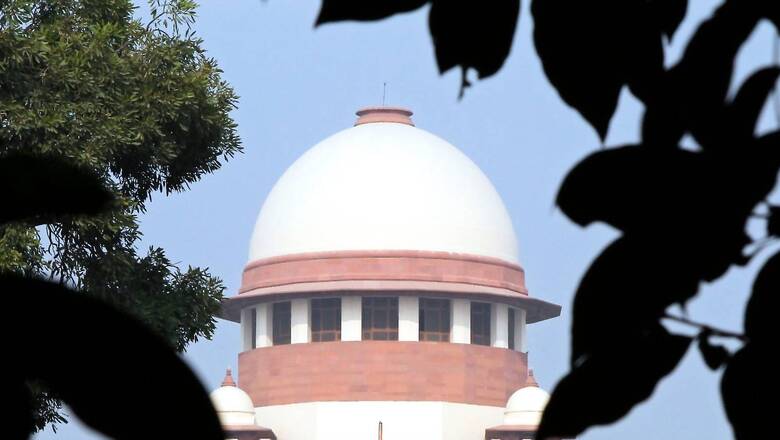
views
The Supreme Court Tuesday held the four-month statutory provision for granting sanction to prosecute government officials in criminal cases, including graft matters, is mandatory, saying delay in prosecuting the corrupt breeds a culture of impunity and leads to systemic resignation to the existence of corruption in public life. The top court, in a significant verdict, ruled, The competent authority shall be accountable for the delay and be subject to judicial review and administrative action by the Central Vigilance Commission under … the CVC Act.
A bench of Justices B R Gavai and P S Narasimha, in its 30-page verdict, however, said though the delay in granting the sanction to prosecute can be assailed in the high courts and the top court, it would not be a ground for quashing the criminal cases against government officials. It said the sanctioning authority must bear in mind that public confidence in the maintenance of the rule of law, which is fundamental in the administration of justice, is at stake here.
In considering the request for sanction, the sanctioning authority stultifies judicial scrutiny, thereby vitiating the process of determination of the allegations against the corrupt official, it said. Delays in prosecuting the corrupt breeds a culture of impunity and leads to systemic resignation to the existence of corruption in public life. Such inaction is fraught with the risk of making future generations getting accustomed to corruption as a way of life. Viewed in this context, the duty to take an early decision inheres in the power vested in the appointing authority to grant or not to grant sanction, it said.
Three months period, extended by one more month for legal consultation, is available to the appointing authorities for granting sanction to CBI and other probe agencies to prosecute public servants in criminal cases under section 197 of Code of Criminal Procedure and under Section 97 of the Prevention of Corruption Act. The bench was hearing the appeal of a government official Vijay Rajamohan against a Madras High Court verdict.
The HC had allowed the appeal of CBI against an order of the trial court which had discharged Rajamohan on the ground that the sanction to prosecute was vitiated due to non-application of mind in a disproportionate assets case of Rs 79.17 lakh. The CBI had made the application for sanction for prosecution on September 08, 2015 and it was granted on July 24, 2017 after a delay of a year and ten months.
It dismissed the appeal and left it to the accused government official to seek appropriate remedy. The court dealt with legal issues including whether the statutory period for the appointing authority to decide upon a request for sanction is mandatory or not. The …issue is answered by holding that the period of three months, extended by one more month for legal consultation, is mandatory. The consequence of non-compliance with this mandatory requirement shall not be quashing the criminal proceeding for that very reason. The competent authority shall be accountable for the delay and be subject to judicial review and administrative action by the CVC…, it said.
The court also held that upon expiry of the statutory period, the aggrieved party, be it the complainant, accused or victim, would be entitled to approach the high court concerned. The aggrieved parties are entitled to seek appropriate remedies, including directions for action on the request for sanction and for the corrective measure on accountability that the sanctioning authority bears.
This is especially crucial if the non-grant of sanction is withheld without reason, resulting in the stifling of a genuine case of corruption. Simultaneously, the CVC shall inquire into the matter in the exercise of its powers under… and take such corrective action as it is empowered under the CVC Act, it said. It also said the statutory scheme under which the appointing authority could seek and consider the advice of the CVC can neither be termed as acting under dictation nor a factor which could be referred to as an irrelevant consideration.
The opinion of the CVC is only advisory. It is nevertheless a valuable input in the decision-making process of the appointing authority. The final decision of the appointing authority must be of its own by application of independent mind. The issue is, therefore, answered by holding that there is no illegality in the action of the appointing authority, the DoPT, if it calls for, refers, and considers the opinion of the Central Vigilance Commission…, it said.
Read all the Latest News India and Breaking News here




















Comments
0 comment